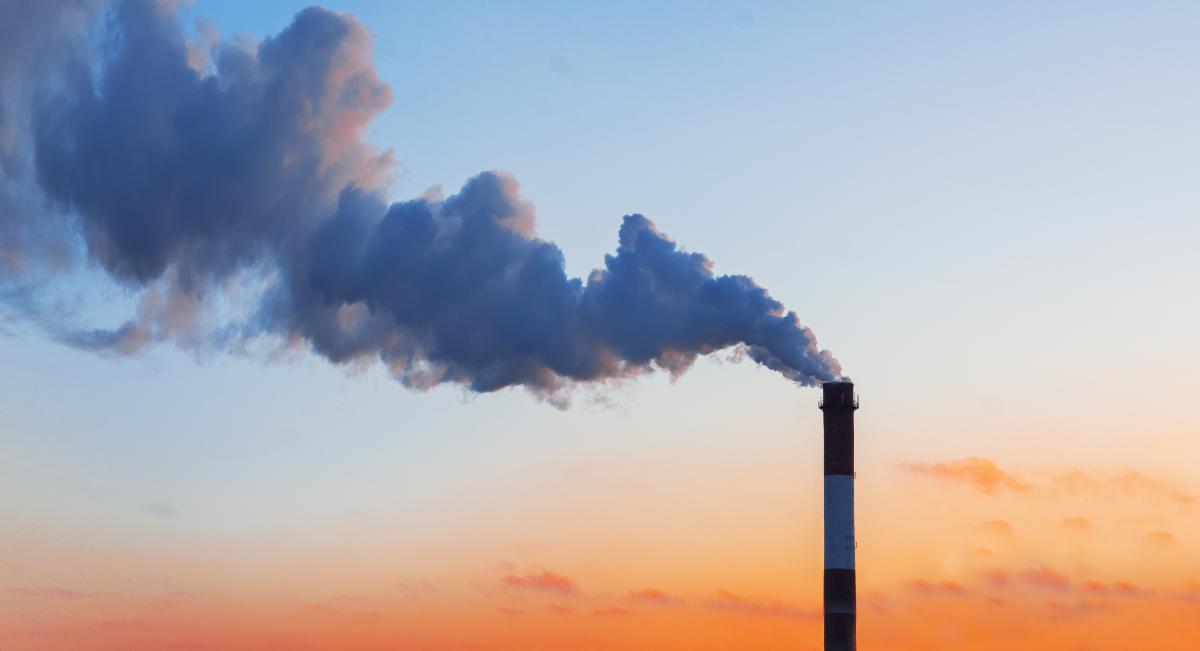
What colour smoke will emerge from this year's COP26?
Published on: 29/10/2021
With a few notable exceptions, the world's political elite and their brokers will be at Glasgow for COP26 next week. I'll be watching as closely as anyone else – looking to see what sort of smoke comes from the COP chimney: a clean white puff of steam from a solar-powered water heater? Or maybe a dirty black cloud of soot-laden smoke from an old coal heater! Like everyone else, I'm convinced that COP and the decisions that will be made there are crucial for my own and all our children's future.
That said, I'm also concerned. Concerned about whether the world's leaders are ready to mandate strong action, and uneasy about where the emphasis will fall, about what sort of action will be prioritised. Oversimplifying a bit, whether mitigation, where we try to reduce carbon emissions, or adaptation, where we try to manage the impact of the climate change that is already occurring, will dominate. I'm afraid that the focus in the rich world on mitigation, essential as it is, risks distracting attention and badly needed money from adaptation to the climate change that is already hitting the poorer world. I'm worried because climate is complicated, and the links between climate, adaptation and resilience are not always clear.
Take the crucial business of providing safe water and sanitation. As a hydrologist, I understand and can argue all the ways that water and climate are linked. Yet in the 20 years I've spent working in water and sanitation, I've also come to understand how little hydrology, or the availability of raw water resources, really has to do with providing these vital services. Yes, of course, scarce raw water makes providing safe drinking water harder. But the reality is that the amounts that people need to drink and cook and keep themselves clean are so trivial – compared, for example, to those needed to irrigate food – that they can be found almost anywhere.
Our failure to provide safe water and sanitation isn't due to lack of water, it is driven by other things, key among them lack of political priority and investment.
Looking at climate, and water and sanitation services, through a resource scarcity lens, or using the decadal scale of climate change mitigation, is therefore largely to miss the point. For many poorer countries, climate change is real and present. Together with rapid demographic and economic change it produces a perfect storm of insecurity and uncertainty. For men and women, and for the governments who try to serve them. Viewed through this lens, of struggling to adapt to climate change that is already happening, water and sanitation services are crucial. Crucial to building resilience because they are essential services to households and also fundamental to many other services, whether that is education or healthcare or broad economic development.

To meet our climate action ambitions, the world will have to see stronger political commitment than that displayed at COP21, which led to the signing of the Paris Agreement.
At COP, much is going to be made of the rich world's accountability for having created the climate crisis. Rightly so. Equally right will be the insistence that it must take a lead in mitigating further damage. But it must go further than that, we must also insist that it helps poorer countries to adapt to change that has already happened and that is locked into even the most positive future climate scenarios.
Adaptation must be adequately funded. In 2009 the world promised to provide US$100 billion of climate finance for poor countries, annually, by 2020. That target was missed, and it now seems likely will only be achieved by 2023. As an aside, this largesse translates into approximately US$100 for each of the billion people living in countries designated by the UN as 'least developed': it is not even close to adequate. Yet, it is a start, and it is money that needs to be spent, in part, on adaptation and on safe and resilient water and sanitation services - as part of that adaptation.
My wish for COP is that we'll see a puff of climate friendly white steam, and that it will be accompanied by real commitments to supporting adaptation in the poor world. After that, it is up to all of us to make the case for why investing in climate resilience means investing in safe water and sanitation.
At IRC we have strong opinions and we value honest and frank discussion, so you won't be surprised to hear that not all the opinions on this site represent our official policy.